The Indian Sale of Goods Act, 1930
Introduction
The Indian Sale of Goods Act, 1930 is a Mercantile Law that was enacted during the British Raj on 1 July 1930, taking significant inspiration from the 1893 Sale of Goods Act. This Act governs the creation of contracts where a seller transfers or agrees to transfer the ownership of goods to a buyer in exchange for consideration.
Formation of Contract
What is a Contract of Sale?
A contract of sale is an agreement between a seller and a buyer where the seller agrees to deliver or sell something to the buyer for a fixed price, which the buyer agrees to pay. Ownership of the goods transfers when the buyer pays, and the seller delivers the goods.
The Sale of Goods Act, 1930 regulates such agreements. Section 4(1) defines a contract of sale as an agreement where the seller transfers or agrees to transfer the property in goods to the buyer for a price.
Essentials of a Contract of Sale:
- Two Parties: There must be at least two parties involved.
- Goods: The contract must involve goods.
- Price: There must be a consideration, i.e., a price.
- Transfer of Ownership: The ownership of the goods must be transferred.
- Immediate or Conditional: The transfer can be immediate or subject to conditions.
- Legitimacy: The contract must fulfill all other legal requirements.
This content mainly focuses on the formation of contracts as described in Sections 4 to 17 of the Sales of Goods Act, 1930.
Sale and Agreement to Sell
The distinction between a sale and an agreement to sell is a foundational principle of the Sale of Goods Act, 1930. Section 4 directly addresses this distinction.
Sale:
Section 4(1) defines a sale as a contract where the seller transfers or agrees to transfer the goods to the buyer for a price. This transfer happens immediately. A sale is fixed, conditional, and binding on both parties. A sales contract is formed by an offer to buy or sell goods at a price and the acceptance of that offer.
The agreement may involve immediate transfer or payment or both, or it might allow for deferred transfer or payment. A contract of sale can be made in writing, orally, or implied by the conduct of the parties. The process of forming a sales contract is explained in Section 5 of the Act.
Typically, sales contracts involve existing goods owned or possessed by the seller. However, the goods may also be future goods.
Agreement to Sell:
An agreement to sell refers to a contract where the transfer of ownership in goods is set to take place in the future or upon the fulfillment of certain conditions. This is detailed in Section 4(3). An agreement to sell becomes a sale when the time elapses or the conditions are met. The terms and conditions of the sale, including the price and future payment date, are outlined in the agreement.
This can also be related to a contingent contract as per Section 31 of the Indian Contract Act, 1872. An agreement to sell is a contract to do or not do something if a certain event occurs.
All terms and conditions of the agreement must be adhered to by both parties throughout the transaction until the sale deed is completed. An agreement to sell forms the basis upon which the sale deed is drawn up.
Key Differences Between Sale and Agreement to Sell
- Timing: A sale happens immediately, while an agreement to sell is set for the future, contingent upon certain conditions.
- Transfer of Ownership: In a sale, the transfer is immediate, whereas in an agreement to sell, the transfer occurs later.
- Risk: In a sale, the risk passes to the buyer immediately, while in an agreement to sell, the risk remains with the seller until the goods are transferred.
- Contract Type: A sale is an executed contract, while an agreement to sell is an executory contract.
Subject Matter of Contract of Sale
Section 6 specifies that goods must always be the subject matter of the contract. These goods may be existing or future goods. A contract for the sale of goods can also be based on a contingency that may or may not occur.
For example, a contract to sell a product that is yet to be manufactured is valid. However, if a specific product is lost or damaged without the buyer’s consent at the time the contract is made, the contract is considered void from the beginning. This is based on the principle that if both parties are mistaken about a material fact, the contract is null and void, as mentioned in Section 7 of the Act.
Section 8 addresses situations where goods perish before the sale but after an agreement to sell. This highlights cases where goods are destroyed without any fault of the seller or buyer.
The Price
'Price' refers to the monetary value agreed upon for the sale of goods, as defined in Section 2(10).
Under Section 9, the price may be fixed by the contract, agreed to be determined later, or set by a third party. If a third party is to determine the price but fails to do so, the agreement becomes void. However, if the failure is due to one party’s default, that party is liable for damages.
If the buyer has received and kept the goods, they must pay a reasonable price.
Conditions and Warranties
Stipulation of Time:
The time of payment is generally not considered essential to a sales contract unless specified otherwise. However, the delivery of goods should be prompt. Whether a stipulation regarding time is essential depends on the terms agreed upon by the parties.
The price of goods can be fixed in the contract or determined later. The time of delivery is often crucial to the contract.
Kinds of Conditions
- Expressed Condition: A condition explicitly stated in the contract that must be fulfilled.
- Implied Condition: Conditions assumed by law to be part of the contract unless otherwise stated. These are outlined in Sections 14 to 17 of the Sale of Goods Act, 1930.
A breach of condition allows the aggrieved party to repudiate the contract or seek damages. A breach of warranty, however, only allows for a claim of damages. A breach of condition can sometimes be treated as a breach of warranty, but not vice versa.
Implied Condition as to Title
In any sales contract, there are some fundamental implied conditions on the part of the seller:
- Authority to Sell: The seller must have the legal right to sell the goods.
- Right to Sell at Execution: In the case of an agreement to sell, the seller must have the right to sell the goods at the time the contract is executed.
If the seller lacks the right to sell the goods, the buyer can reject the goods and is entitled to a full refund. For example, in Rowland v. Divall, a buyer purchased a second-hand car, but it was later discovered that the seller had no right to sell it. The court ruled that the buyer was entitled to a refund of the purchase price.
Implied Condition as to Description
Under Section 15 of the Act, there is an implied condition that the goods must match the description provided in the contract. If the goods do not conform to the description, the buyer has the right to reject them. For instance, if someone buys a car believing it to be new, but it turns out to be used, the buyer can reject the car.
Goods must also be of merchantable quality, as stated in Section 16(2). This means they should be of a quality that a reasonable person would accept. For example, if someone buys sugar, but it has been contaminated by ants, the goods are not of merchantable quality, and the buyer can reject them.
In particular, for perishable items like food, the goods must be wholesome and fit for their intended use. For example, if someone buys milk that contains harmful bacteria and dies as a result, the seller may be liable for damages.
Implied Condition as to Sale by Sample
Section 17 of the Act outlines the implied conditions in a sale by sample:
- Correspondence with Sample: The bulk of the goods must match the sample in quality, size, color, etc.
- Opportunity to Compare: The buyer must be given a reasonable opportunity to compare the bulk with the sample.
- Freedom from Defects: The goods must be free from any defects that would make them unmerchantable.
For example, if a company sells shoes to an army based on a sample made with a specific sole, but the bulk delivered does not use the same material, the buyer is entitled to a refund and damages.
Implied Condition as to Sale by Sample and Description
According to Section 15 of the Sale of Goods Act, 1930, when goods are sold by both sample and description, they must match both. In the case of Nichol v. Godts, oil was sold as refined rape oil, but it was later found to be mixed with other oils. The court held that the seller was liable for a refund.
Warranty
A warranty is a collateral stipulation in the contract. Breach of a warranty does not allow the buyer to repudiate the contract but does allow them to claim damages.
Kinds of Warranty
- Expressed Warranty: These are warranties explicitly agreed upon by both parties and included in the contract.
- Implied Warranty: These are warranties not explicitly stated but are assumed to be part of the contract. Examples include:
- Undisturbed Possession: Under Section 14(2), the buyer is entitled to enjoy possession of the goods without interference. If the buyer is disturbed, they can sue the seller for breach of warranty.
- Freedom from Encumbrances: Under Section 14(3), the goods must be free of any third-party claims not known to the buyer. If the buyer knew of such claims, they cannot seek compensation.
Implied Warranty to Disclose Dangerous Nature of Goods
If the goods sold are hazardous and the buyer is unaware, the seller is obligated to warn the buyer of the potential danger. Failure to do so can result in liability for the seller.
Conclusion
To become a legally binding contract, an agreement for the sale of goods must go through specific stages and procedures. The parties involved should verify the fairness of the agreement before finalizing it. While there is no formal structure required for drafting a sales contract, including certain clauses can enhance its validity and clarity. The provisions discussed provide a basic framework for ensuring that the contract meets legal standards and protects the interests of both buyer and seller.


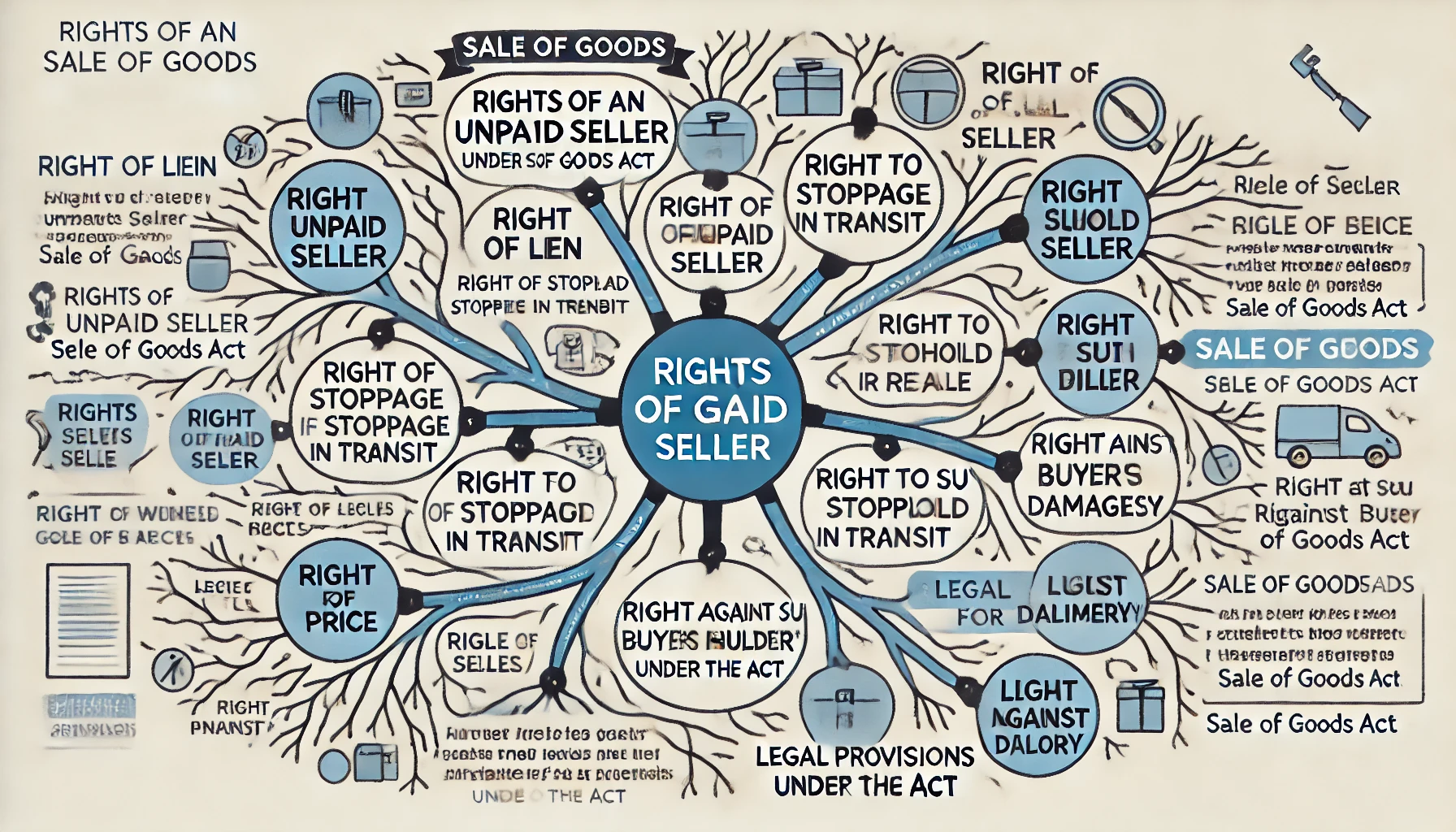
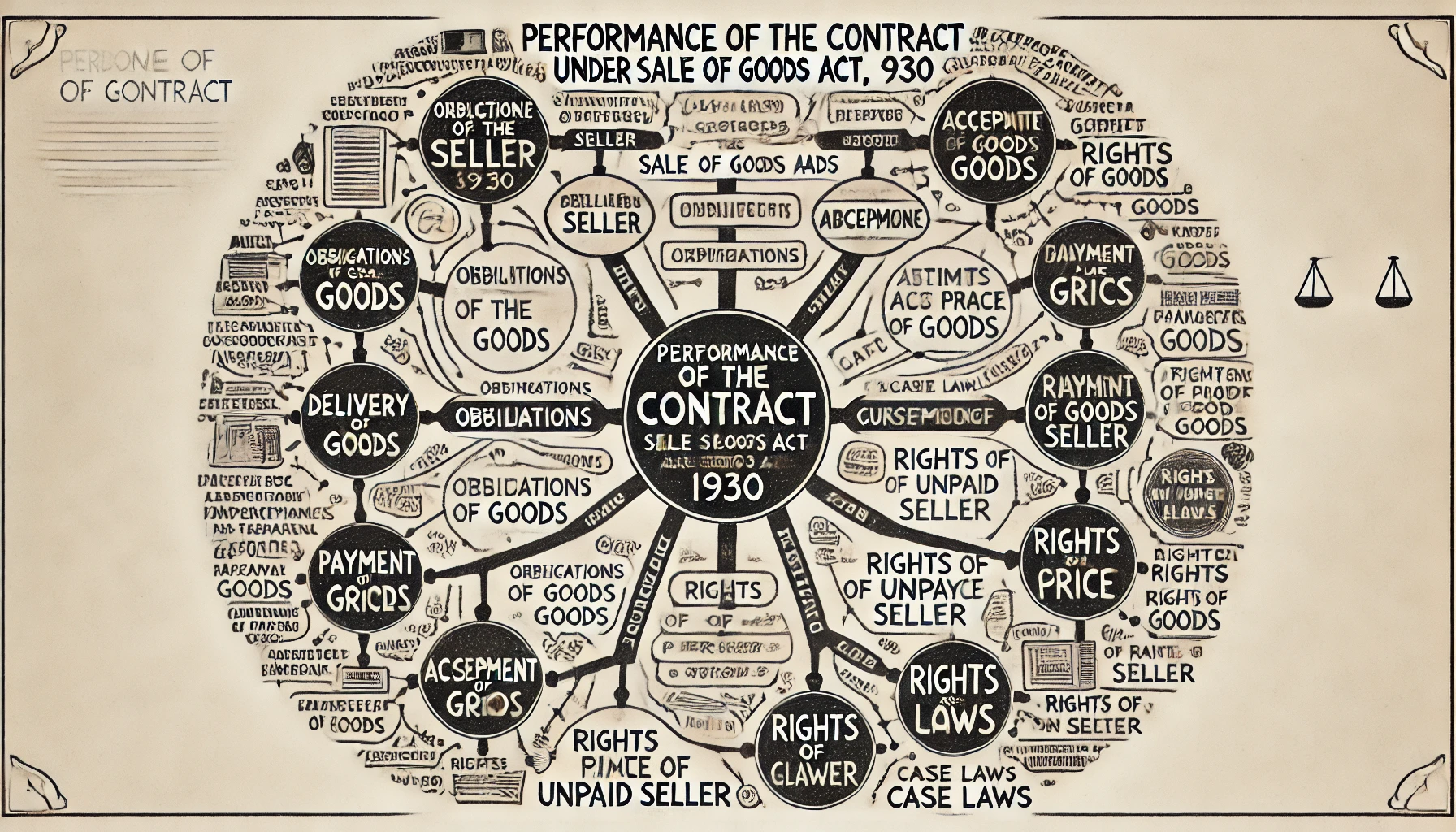
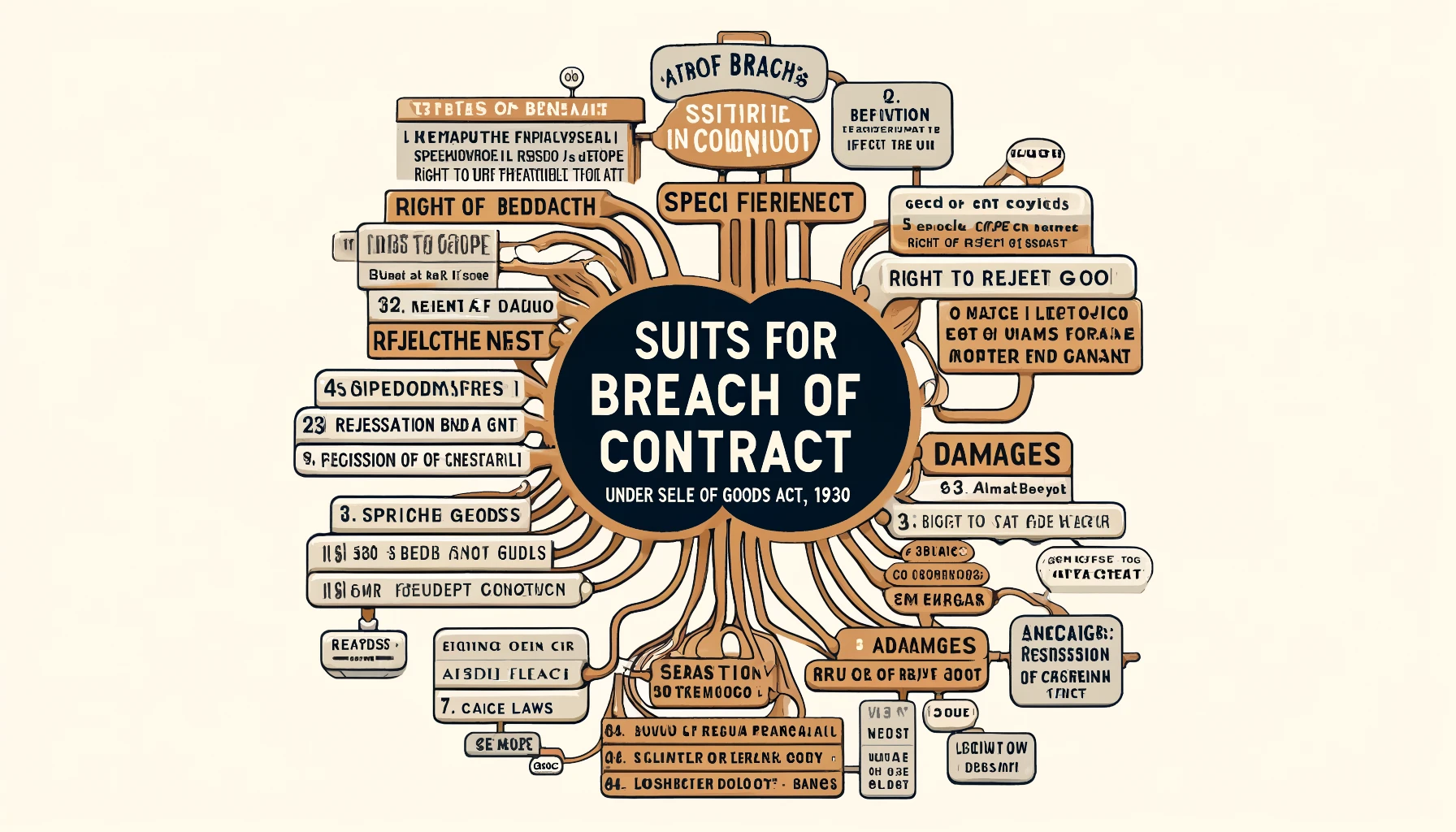
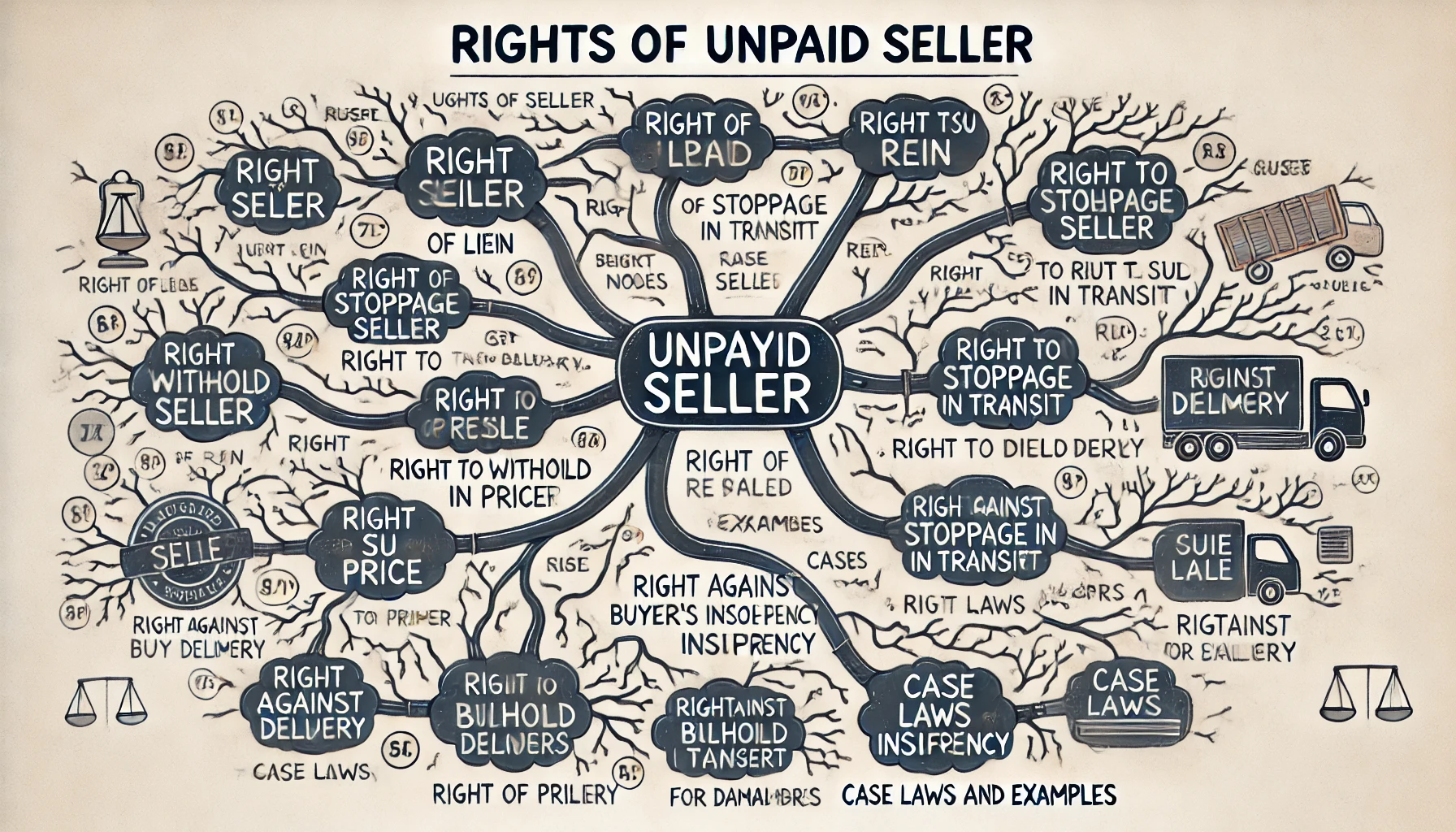
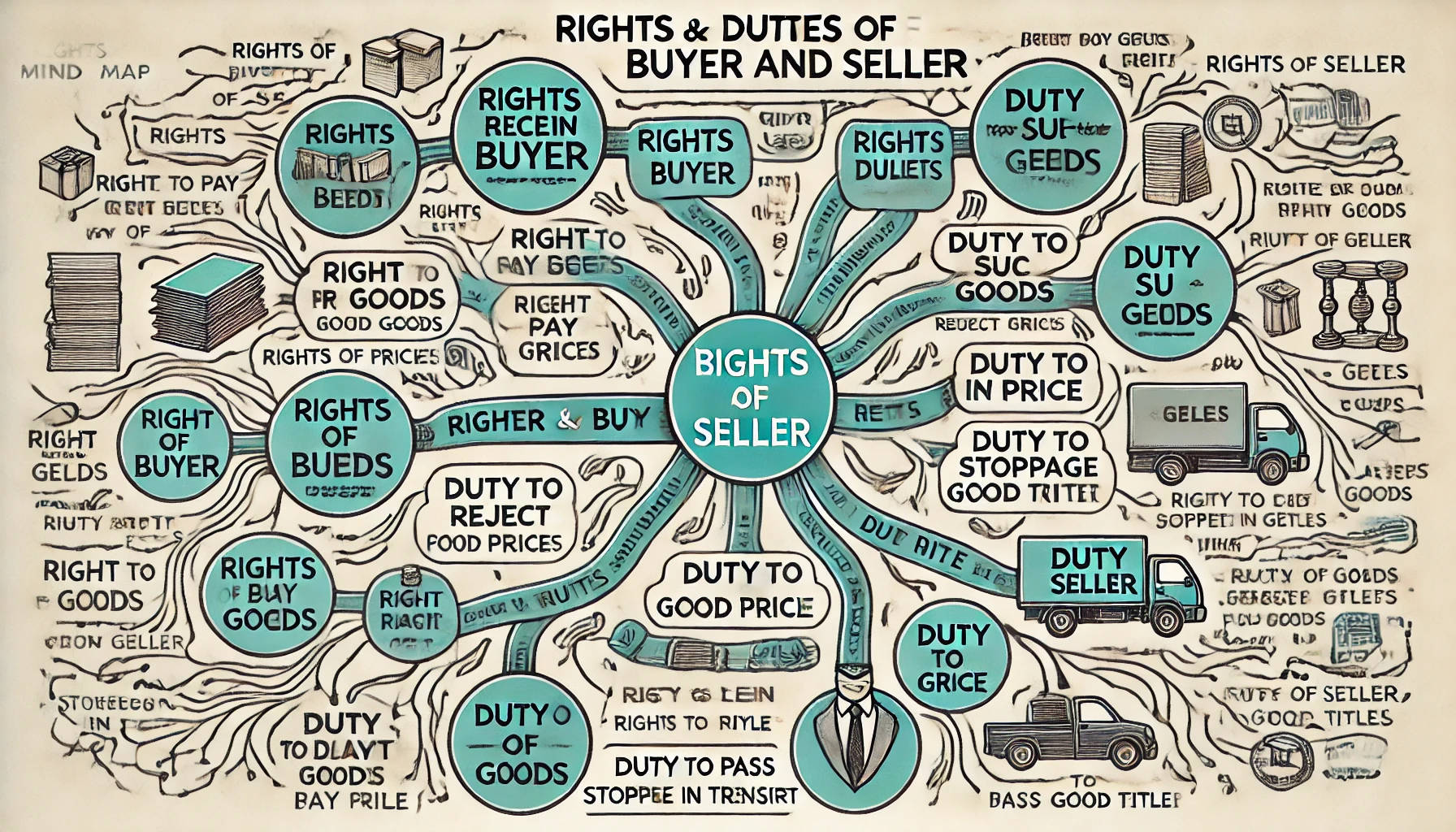






































































































Comment
Nothing for now